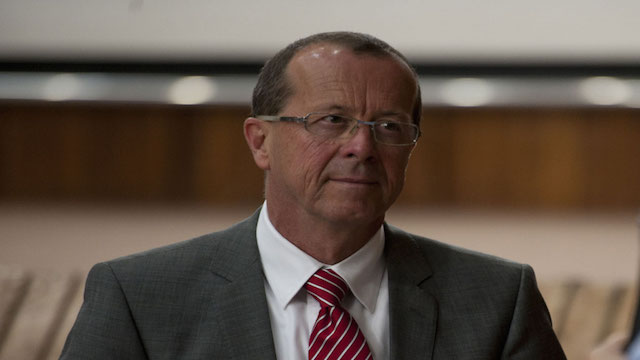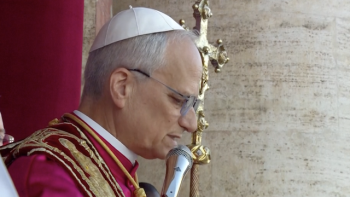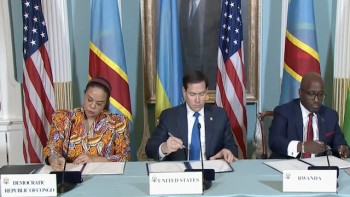On December 8, 2014, MONUSCO head Martin Kobler met with FDLR President Major General Byiringiro, according to sources within MONUSCO. During the meeting, Martin Kobler apparently communicated the following to General Byiringiro:
- FDLR troops , including all top commanders must disarm by Jan 2, 2015, without conditions.
- FDLR must hand over all commanders sought by the International criminal court(ICC)
- FDLR top commanders, not sought by the ICC, may seek asylum in SADC countries, if they so wish. MONUSCO would facilitate.
- If the above conditions are not met, military operations will start on January 2, 2015.
According to the sources, Major General Byiringiro did not appeared fazed by the ultimatum. After the meeting, he sent out a letter to World leaders, in which he
J
stated that: "ill-advised approaches have been applied by the international community (i.e. United Nations (UN)) in an attempt to resolve the Rwandan complex problem due to understanding it in very superficial and shallow ways...the international community should not waste its time on that matter[NDLR: resettling Rwandan refugees in a third country] unless if it has an ulterior agenda. It should be noted that Rwanda is our country and as such, it is where all Rwandans must enjoy their fundamental rights. And no one has the right to prevent them from it."
Based on that, it is clear that FDLR may not meet the stern conditions outlined by MONUSCO's head. In that case, the question may then be: what will Martin Kobler do next?
The answers evolve around the following factors: Beni-Mabu massacres, potential human toll, availability of troops to MONUSCO, and security situation in Rwanda.
Kobler Martin shackled by the consequences of the Beni-Mabu massacres
MONUSCO has been grappling with what has now become known as "Beni Affair", due to the perceived inability of MONUSCO to avert or at least stop the large scale massacres of civilians, in the Beni areas, by alleged Ugandan ADF-NALU rebels. The Beni-Mabu repeated massacres may be an additional weight on Kobler Martin's shoulders. All eyes are on him, wondering how he will end the tragedy using the MONUSCO troops.
Efforts so far have failed, and MONUSCO is more and more seen as inefficient and unable to deal with localized insecurity leading to massacre of civilians. Civilians in Beni and elsewhere in North-Kivu have openly expressed their frustration against MONUSCO. Several local politicians and traditional leaders have also entered the fray. The questions oftern raised are mostly the following:
- how MONUSCO will undertake military operations against FDLR and Rwandan refugees, if it is unable to stop ADF-NALU from massacring civilians?
- how is Kabila's going to supply troops to hunt down peaceful Rwandan refugees, when ADF killers are roaming free in Beni?
This remains a critical question, especially after DRC President Joseph Kabila said during his last visit in Beni, while commenting on the lack of security in North-Kivu, that "people should not confuse Rwandan rebels with ADF."
In his state of the country speech, on December 15, 2014, President Joseph Kabila highlighted his hesitation when he questionned the wisdom of "seeking foreigners to resolve Congolese problems, as though Congolese are not able to do it themselves." This is consistent with the DRC government during a ICGLR-SADC meeting in October (see our article: DRC Government Opposes Military Actions Against Rwandan Rebels of October 26, 2014.
Potential civilian toll from military operations
Martin Kobler has an even more serious ethical and moral dilemma: among the so called FDLR and other Rwandan rebels, are 240,000 refugees, mostly women, children, and elderly. How is MONUSCO going to justify military operations against refugees the United Nations is supposed to protect? How will MONUSCO separate civilians from combatants in the Congolese jungles or Rwandan refugees from Congolese nationals?What will happen if most casualties from MONUSCO's military operations and bombings are women and children?
Troops Availability
Sources with the DRC government have told AfroAmerica Network that Joseph Kabila is opposed to the military operations against Rwandan refugees. Nevertheless, MONUSCO relies on FARDC troops to conduct operations. In fact, SADC, especially Tanzania and South African governments, has apparently told MONUSCO that their troops will not get involved in fighting Rwandan refugees. Joseph Kabila's government has also indicated that the priority for FARDC troops is stopping massacres in Beni-Mabu. The question now is: what troops Martin Kobler will use in military operations against Rwandan rebels and refugees?
Security Situation in Rwanda
Recently, the government of Rwanda has been accused of large scale massacres and assassinations targeting civilians. Countless bodies of Rwandans, believed to be those of perceived opposition members, have been floating in lakes and rivers in Southern Rwanda and Northern Burundi. Several people, especially the demobilized soldiers, both former rebels and former government soldiers, have disappeared.
How is MONUSCO, a United Nations peacekeeping mission, going to force Rwandan refugees and political leaders to return to Rwanda, with a high risk of being massacred or assassinated?
Many questions, including the increasing chances of the resumption of war by ex-M23 rebels, that will definitely need answers as the January 2, 2015 MONUSCO ultimatum to Rwandan refugees approaches.
©2014 AfroAmerica Network. All Rights Reserved.

















